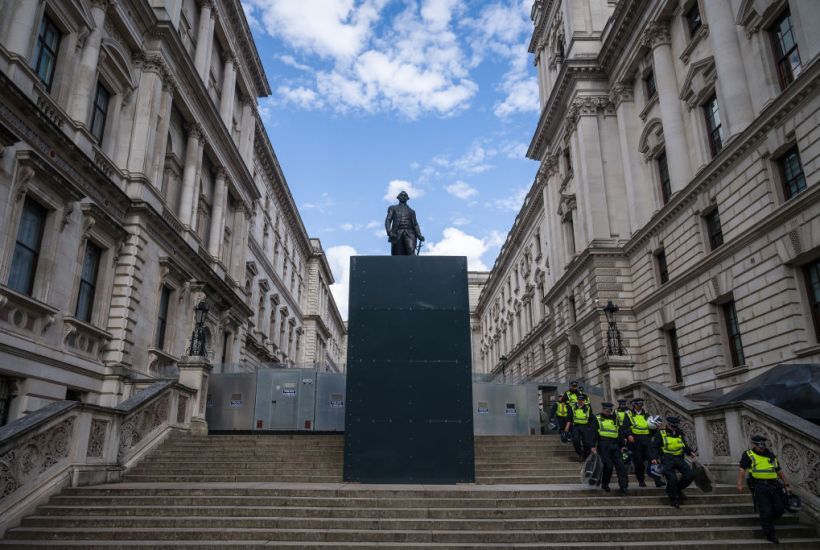Tearing down statues and renaming places is all the rage. But acting in this way isn’t always a mistake. Take Clive House, at my old school, Merchant Taylors’, which was, until this month, named after Robert Clive, conqueror of Bengal, hero of Plassey and my school’s most famous former pupil (asides from Michael Mcintyre). Now it will be known as Raphael House, after John Raphael, a former pupil who died fighting in Flanders.
Is this part of the worrying trend of ahistorical, post-BLM iconoclasm that dunked Colston in the Avon, graffitied Winston Churchill and renamed Birmingham’s streets after HR buzzwords? I’m not convinced – and not only because of what Clive got up to after he left Merchant Taylors’.
Robert Clive was one of Merchant Taylors’ worst ever pupils, which is remarkable for a school that also expelled Titus Oates. Clive was enrolled by his exasperated father after his previous school expelled him for violence. As he had been terrorising his town’s shopkeepers with a protection racket, few were unhappy to see him go. After only a year at his new school, Clive was again kicked out – for fighting.
His father then took a radical step: shipping him off to work for the East India Company. The rest, as they say, is history: there he earnt his fame as a General and Governor, conquering Bengal and doing more than anyone to establish Britain’s Indian Empire.
Of course, it wasn’t his school record that led the school’s governors to name a House after him in 1921. At a time when quite a few pupils could expect a career in the Indian Civil Service, Clive House was a no-brainer. But while having a Clive House made sense a century ago, that’s no longer the case.
Don’t get me wrong: I depart from many of my fellow undergraduates in blaming the British Empire for most evils of the modern world. I disagreed with Colston’s removal by the mob last year as it made a mockery of due process and proper debate. And I’m probably one of the few Oxford students who doesn’t think Rhodes must fall.
Yet just because some of the statue topplers got it wrong last year doesn’t mean we should stand still in our view of history. E.H.Carr, another former Merchant Taylor, incidentally, was right when he said history is an unending dialogue between the present and the past. By this, he meant our view of the past is shaped by our present, and changes as society changes. That is why today’s historians do not treat Edward Gibbon as the final authority on the fall of the Roman Empire.
In the same vein, Colston’s statue reflects the values, not of seventeenth-century slave traders, but of the philanthropist who put him up in the 1890s. Similarly, Cromwell’s Parliament statue commemorates a man Victorian liberals treated as an icon of liberty, not as the dictatorial fanatic with a penchant for genocide.
Clive House’s name came from a Britain for whom the Empire was still part of daily life. Now that pupils are rather less likely to be aspiring nabobs and rather more likely to be descended from the Indians Clive conquered, the name was out of place long before last year.
Yet if Clive is a miserable example to today’s school kids, John Raphael provides the perfect role model. He was the best sportsman Merchant Taylors’ has produced. By 1914, he had led the first British rugby tour of Argentina and stood for Parliament as a Liberal. His glittering sporting and political prospects were cut short by the First World War. Wounded at the Battle of Messines, he only sought aid once all his men had been helped. He died because he put others first. He was, in short, a hero. As thrilling as Clive’s exploits in India may have been, or as unfairly as he may have been condemned in recent months, I know which of the two provides the better inspiration for the class of 2021.
Got something to add? Join the discussion and comment below.
Get 10 issues for just $10
Subscribe to The Spectator Australia today for the next 10 magazine issues, plus full online access, for just $10.




















Comments
Don't miss out
Join the conversation with other Spectator Australia readers. Subscribe to leave a comment.
SUBSCRIBEAlready a subscriber? Log in